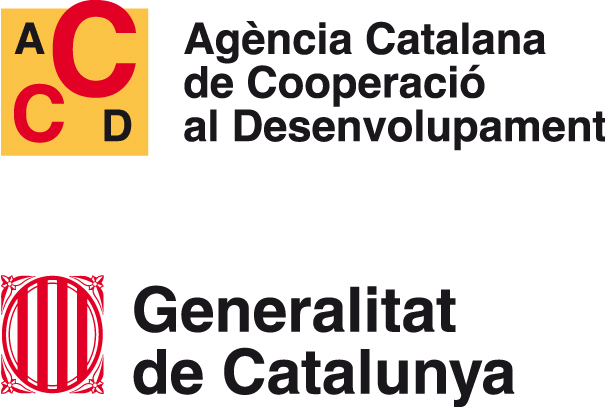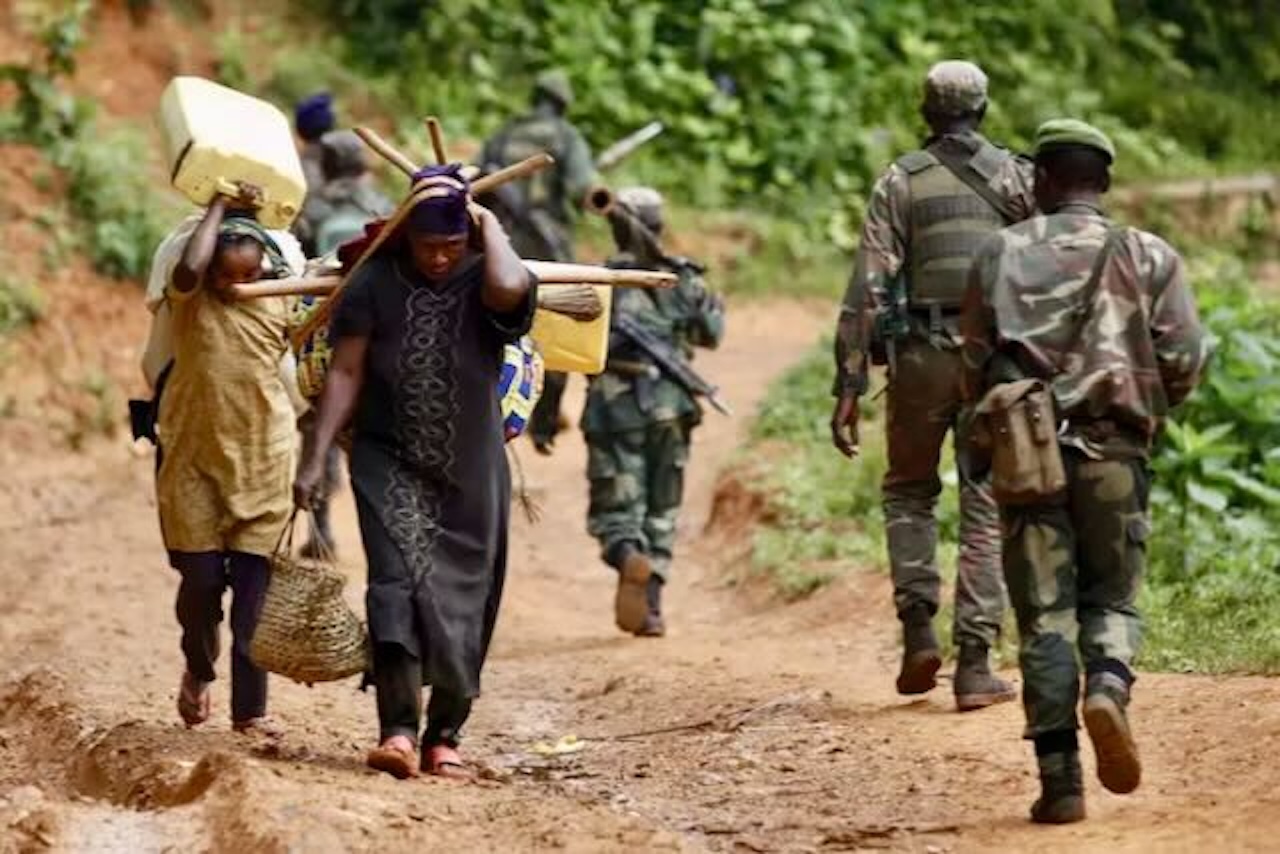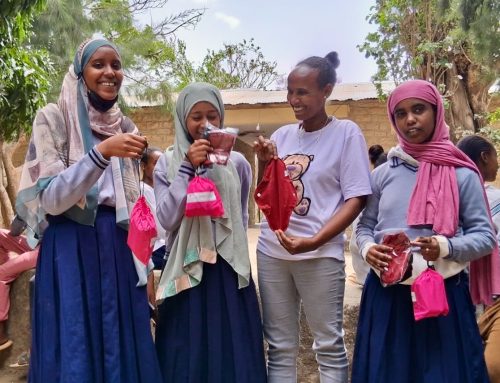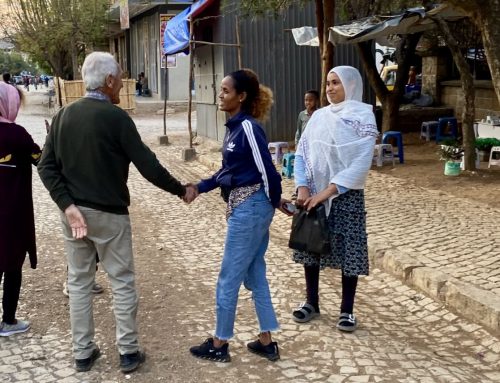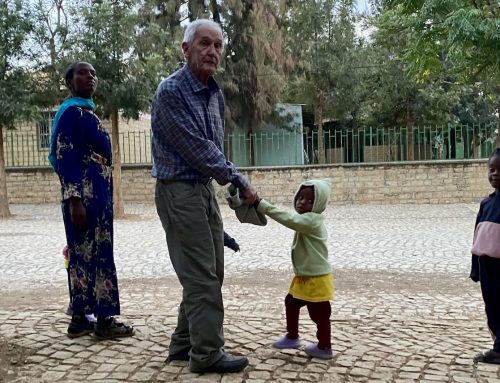The Congo: Silenced Tragedy, Plundered Wealth
This powerful text written by Ángel Olaran, titled “The Congo: Silenced Tragedy, Plundered Wealth”, offers a stark and honest view of the forgotten war that fuels global capitalism. It denounces the invisible tragedy endured by the Congolese people, where millions suffer displacement, hunger, and extreme violence while Western powers and multinational corporations profit from the looting of natural resources such as coltan, tin, and diamonds.
Through a blunt narrative, the role of international actors —including the US, the EU, Rwanda, and Uganda— is exposed in a conflict driven by economic interests. Political hypocrisy and disregard for human life are laid bare, while the treatment of African migration in Europe is called into question.
A must-read that opens our eyes, unmasks global hypocrisy, and challenges us to reflect on how African migration is addressed.
At the CIS Ángel Olaran Foundation, we feel deeply moved by the injustices that afflict the African continent. Conflicts like the one in the Congo, or like the war suffered by the people of Wukro, Tigray (Ethiopia) between 2020 and 2022, worsen the living conditions of millions every day.
Today, in Wukro, the consequences of that war remain stark: hunger, destruction, lack of opportunities, and an uncertain future. This article helps us understand a silenced reality but also urges us to act.
At our foundation, we work every day to change this reality. Your support can make a difference.
Join us with your donation and support the projects in Wukro.
Written by Ángel Olaran: The Congo: Silenced Tragedy, Plundered Wealth
A raw look at the forgotten war that fuels global capitalism
Invisible War, Silenced Crime. Preaching in the Desert
Current history —today’s— hidden, ignored, and also criminal: “WAR IN THE CONGO (DRC), PURE CAPITALISM”, Rosa Moro: AFRICANA, June 2025. Pages 14–16.
The M23, a paramilitary organization supported by the Rwandan regime, took control of Goma, the capital of North Kivu, and advanced to Bukavu, the capital of South Kivu. Along the way, approximately 7,000 people were killed, in addition to mass rapes of women, girls, and boys, unspeakable torture of families, indiscriminate massacres, live burials, looting, and destruction. Around 7 million people have been displaced and are crammed into already overcrowded camps, among them unaccompanied minors… It is estimated that 28 million people are suffering from acute hunger. Deaths from malnutrition, lack of medicine and hygiene. And more.
Directors, Actors, and Victims of a Macabre Play
The horror stage: natural wealth in dispute. All of the above sets the backdrop.
Stage Design:
The Congo is a powder keg of wealth with abundant cobalt, copper, coltan, gold, silver, diamonds, cassiterite, uranium, rare earths, tin, tantalum, tungsten, oil and gas reserves, and fertile land. A tropical rainforest. And more.
Directors of the Play:
Major Western powers, mainly the United States and the United Kingdom, along with the European Union and Israel.
Main Actors:
Rwanda and Uganda —delegates and mercenaries, armed and trained by the Directors, who also finance them and take all necessary measures to ensure that the resources from that setting are easily exported to Western markets.
Extras:
The soldiers who kill, destroy, and rape…
Diplomatic Darkness and Political Cynicism
The Theme of the Play:
The attack in January 2025; as a result, on March 13, the American company Alphamin Resources Corp., based in Walikale, had to shut down due to insecurity. This caused tin prices to rise by 30%. In response, Trump sent two of his top Africa advisors, who managed to restore calm to the area, allowing the company to reopen and bringing down tin prices significantly.
Within the European Union, sanctions against Rwanda were considered, but since Rwandan troops protect French companies, the issue was dismissed. The writer notes that “the cost is covered by public funds, under the guise of ‘peace missions’” — natural intelligence, however evil it may be.
The mentioned advisors, back in Washington, stated during a press conference on April 17: “Both expressed pride in their achievements […] promoting lasting peace throughout Kivu and fostering, as well as protecting, American private sector investment.”
Date shuffling:
Their trip from April 2 to 9 included visits to the capitals of Congo, Rwanda, Uganda, and Kenya. At the end of January 2025, the M23 takes Goma and Bukavu on February 16. On March 13, the American company shuts down. On April 17, the press conference is held in Washington — by then, the company had reopened. On April 23, a meeting takes place in Qatar, a country with many economic interests in the Congo. An agreement is signed between “both parties,” reaffirming their commitment to an immediate ceasefire — reaffirming something already reaffirmed before. All parties are interested in the region’s security. Who are these “both parties”? It is known that Tshisekedi and Kagame, presidents of Congo and Uganda, were present.
Rosa Moro ends her piece: “It’s nothing but pure capitalism.”
Voices from the Heart of Bukavu
Are we being informed? Misinformed? Are readers being ignored?
In the same Bulletin, page 32: CALL FROM THE YOUTH OF BUKAVU TO THE GREAT POWERS.
“You who have the power to provoke war, please stop fueling it in our country.” A demand signed by 40 young people and addressed to the Fides Agency, after the rebels of M23 seized the city on February 16.
According to the youth: the aim of this war is “to control the country’s mineral resources, later exported through Rwanda to major technology industries.”
All 40 also proclaimed: “To achieve peace we need love, forgiveness, dialogue, understanding, reconciliation.”
Jargon foreign to the ideals of the European Union and its allies.
The cry of Pope Francis still echoes: “Africa is not a mine to be exploited, nor a land to be plundered.”
Relentless Plunder, Hopeless Migration
The response of the West:
The European Union, contrary to its principles, plans to create its own army. So many thousands of outstanding people; so many millions of euros involved in this dirty affair, and yet they can do no better! Incapable of offering an alternative. Any fool could have reached the same decision with that money in hand, with all due respect.
More deaths, misery, horror, destruction in resource-rich countries; more wealth in the West, generated from the looting of original wealth. Weapons are sold, jobs are created. And the cost will always be borne by the tax burden of the populations devastated and impoverished by those weapons.
Anything but promoting industry in situ, where the raw materials come from. Trump’s two envoys proudly celebrated having “fostered and protected U.S. private sector investment,” while blasphemously claiming to have achieved lasting peace in Kivu.
Not only is it untrue that they established peace in the region, but it was clearly not even among their concerns. In the Congo, everything is produced at rock-bottom prices —starting with tin, as in this case— and workers earn equally minimal wages. Customs tariffs, if they exist, always play in favor of the West.
Sovereignty, Racism and Humanity
Western migration policy borders on foolishness — if not outright ill will. There is interest in keeping Africans poor, in preventing them from benefiting from what Nature has given them. Trump understands this perfectly.
If the European Union invested just a third of what it plans to spend on creating and maintaining its army —and part of the money used to protect its borders from undocumented migrants— in building industries in African towns, whose profits would be reinvested in local development, very few young people would risk crossing deserts and seas.
If one day African politicians and economists organize an African trade network and an internal market, migration would shift toward Africa.
In the 1960s, Africa freed itself from colonial rulers. Today, Africa still needs to free itself from many of its own politicians, who unscrupulously allow themselves to be corrupted by Western counterparts and others. They were educated under colonial principles, and when the colonizers left, they left behind countries with police and armies. There were barely three universities in sub-Saharan Africa. And neocolonialism began.
According to the press, Spain is overwhelmed by cruise passengers, backpackers, and migrants arriving in small boats. The first two groups, despite the problems they may cause, face no border issues. Most of those arriving by boat have had to pay much more for their journey than their “counterparts.” Each has their own story of suffering, fear, horror —driven by the families they left behind.
Once aboard the small boats, they face the shortest but also the most dangerous part of the journey —not just due to weather conditions.
By that time, coltan, lithium, potassium, gold, copper, silver, diamonds, uranium, tantalum, cobalt, tin, cassiterite, tungsten… are already producing weapons and creating wealth in Spain and the rest of Europe.
The crime weighing on Western conscience is that, while profiting from this plunder, they continue to persecute migrants —people who simply seek safety to harvest olives, fruit, work in street vending, and support their families back home.
Faced with this rejection, many are left with no option but to turn to drug mafias or organize in ghettos… often the same networks that helped them reach “safe harbor” despite all the hardships of the journey.
No matter how inhumane or horrifying the obstacles placed in their way, they will not stop migrating. Their message remains clear: right now, hundreds of them are crossing deserts on foot and seas in precarious conditions. In their own way, they know that work and wealth are here —not in their home countries.
Once again: if they were supported in building their own industries —not like the American company mentioned earlier— but ones that provide decent jobs and wages, there would be no need for razor wire or walls of policemen and dogs along the coastlines.
But then, many Western politicians, both far-right and moderate, would lose a cornerstone of their political rhetoric: in their campaigns, they could no longer stir up outrage by spewing visceral rejection of those “coming to steal our jobs and abuse our democracy.”
Since they rely on those votes, they need migration. Shamefully, they exploit it.
Do these so-called honorable ultra leaders and others truly ignore this economic imbalance? Or are they simply targeting these wolves disguised as lambs?
A philosopher once said: “We are all equal at birth; afterwards, not so much.”
Indeed, cruise passengers and small-boat migrants are not welcomed in the same way.
We are made to believe that National Sovereignty —that of the PASSPORT— is above COSMIC SOVEREIGNTY, the one that gives us dignity. The former divides and destroys: the other is our enemy.
When we see sub-Saharan Africans on our streets and in our fields, LET’S RESPECT THEM. THEY ARE OUR PROVIDERS.
Ángel
A Text That Seeks to Stir Consciences
The suffering of the Congolese people is not born from chaos but from an order imposed by global economic interests. What we consume, what we remain silent about, and what we vote for all have consequences beyond our borders.
We may not be able to change the world all at once, but we can choose to see, to share, to act, and to demand justice.
Because looking the other way is also part of the problem.
The reality faced by the Congolese people is not foreign to us. In Wukro, in northern Ethiopia, we walk alongside a population that has also suffered the aftermath of a recent war and international abandonment. At the CIS Ángel Olaran Foundation, we are committed to projects that restore dignity, hope, and a future to those who need it most.
If this article has moved you, we invite you to take one more step. Your donation can be a real tool for change.
👉🏽 Support us through our website — make a donation!
With the collaboration of
